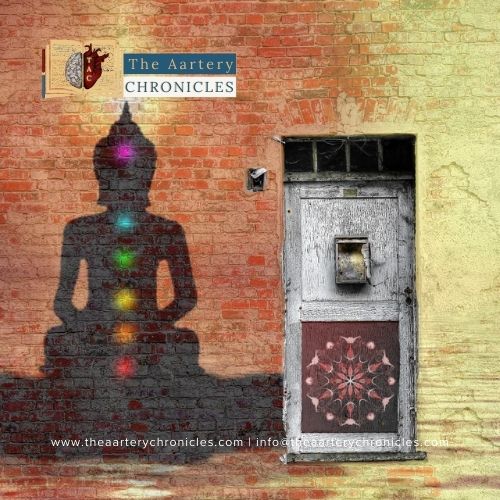Reading Time: 4 minutes Journey To The Source: Exploring The Origins Of Ayurveda Ayurveda is a Sanskrit word, where “Ayur” signifies Life, and “Veda” signifies Sciences. This medicine system has its roots in ancient India and originated about 3000 to 5000 years ago, prevailing to the present day. With a Rich history and traditional heritage, Ayurveda is often admired and esteemed for its holistic approach to health and well-being. Just imagine how they managed to find cures for all ailments without the help of modern Science! According to Hindu mythology, the origins of Ayurveda can be traced back to the Creator of the Universe- Lord Brahma, who passed on the knowledge to Dhanvantari, the physician of the Gods. Another legend suggests that Lord Brahma shared holistic healing knowledge with sages, who passed it down through generations, eventually reaching the common people through oral narratives and writings. Yet another legend claims that Lord Brahma transmitted this holistic wisdom to Lord Indra, who then passed it to Atreya, the author of the Rig Veda and the Atharva Veda. Agnivesa compiled this Vedic knowledge, and Charaka further refined it. This compilation is known as the Charaka Samhita, encompassing all aspects of Ayurvedic medicine. The founder of Ayurveda is Charaka also called Charaka Muni, an ancient scholar and physician who contributed notably to the Ayurveda field of medicine. His work, the Charaka Samhita, continues to be a vital reference for holistic medicine practitioners and has been translated into Tibetan, Greek, Chinese, Arabic, and Persian. Ancient Wisdom Scripted in the Vedas The Vedas, the earliest written scriptures in the Sanskrit language, contain profound knowledge. The Atharva Veda, in particular, imparts wisdom about the healthy lifestyle we ought to follow. Ayurveda, often referred to as the 5th Veda has its roots in these ancient texts. Within these historical scriptures, the teachings concerning the healing properties of various herbs and medicinal plants are conveyed through poetic verses known as “Shlokas.” Recognition of Ayurveda on Global Platform In fact, Nepal has embraced Ayurveda and issued a National Policy on Ayurveda and it is widely practised there. The World Health Organization (WHO) has recognized it as a traditional medicine system, acknowledging its significance alongside other conventional medical systems from different countries. This recognition highlights Ayurveda’s importance in the global healthcare landscape. Principles of Ayurveda The Core Elements: According to Ayurveda, the body has four basics : Dosha, Dhatu, Mala and Agni aka “Mool Siddhant” which form the basic fundamentals of Ayurvedic treatment. 6 Pillars of Ayurveda: There are six pillars of Ayurveda i.e. right food, right exercise, right sleep, breathing & stress management, cleansing and self-awareness/self-reflectionIn essence, these principles are precisely what the doctor prescribes! Dietitians and physicians recommend this lifestyle to ensure our lives remain healthy and free from diseases. The regulatory principles of Ayurveda are “Vata” (wind), “Pitta” (bile) and “Kapha” (phlegm) aka “Tridoshas” which correspond to the three elements in the Universe : air, fire and water. “Vata” – maintains the activities of the cells in our body, electrolyte balance, and eliminates waste products. “Pitta” – regulates body temperature, co-ordinates optic nerves, manages hunger and thirst “Kapha” – lubricates our joins for easy body movement Ayurveda emphasizes the importance of maintaining a perfect balance of these three doshas to prevent illness and promote overall well-being. However, it’s essential to note that Ayurvedic principles and practices are based on a holistic approach to health, and individualized recommendations may vary based on a person’s constitution (Prakriti) and current state of health (Vikriti). Ayurvedic medicines are renowned for their lack of side effects, as they are crafted from natural herbs, medicinal plants, and sometimes incorporate the essence of fruits, spices, animal extracts, and minerals. These remedies are complemented by adopting a wholesome diet, a balanced lifestyle, and regular exercise. Notably, Baba Ramdev, a Yoga guru, and his partner Acharya Balkrishna established Patanjali Ayurved in Haridwar, a company specializing in Ayurvedic medicines and food products. In an episode of The Kapil Sharma Show, Kapil Sharma shared that actor Akshay Kumar follows a practice of chewing each bite of his food around 40 to 42 times. This aligns with the golden rule of Ayurveda, where chewing each bite 32 times is recommended for better food absorption and easier digestion Kerala: The Ayurvedic Paradise Kerala, a state in Southern India, renowned for its geographical location and beauty and wide array of natural herbs/plants, is considered the Paradise of Ayurveda. It is said that a physician from Sindh province visited Kerala in search of natural herbs and trees, and since they were found in abundance, thence began the association of Kerala and Ayurveda. While Kerala is a prominent hub for Ayurveda, Ayurvedic practices and treatments are used in various states across India, and it’s also recognized as an alternative or complementary system of medicine in many parts of the country. There are many Ayurvedic centres/spas here, where people come to rejuvenate and enjoy Ayurvedic therapy. There are also the largest number of Ayurveda colleges and practitioners in Kerala, as compared to the rest of India or the world Conclusion: Our country has so much richness in terms of culture and medicine. We should acknowledge this and ensure that this heritage is preserved for the coming generations, so that they can also reap its benefits, like us. To conclude with an Ayurvedic proverb “ When diet is wrong, medicine is of no use, when diet is correct, medicine is of no need”. Ms Rupal Sonpal


